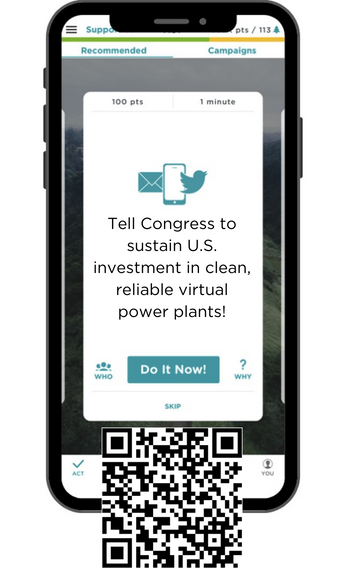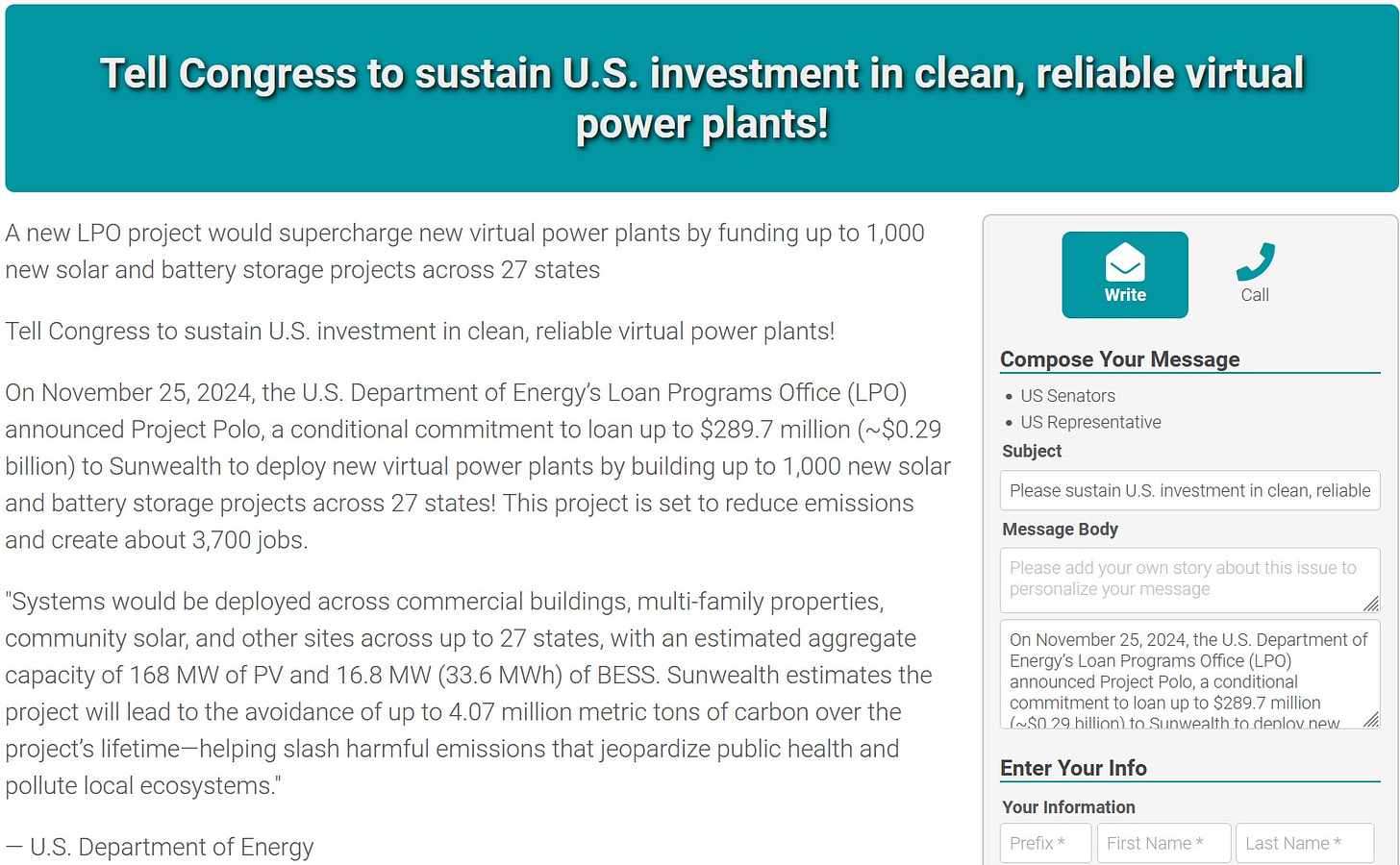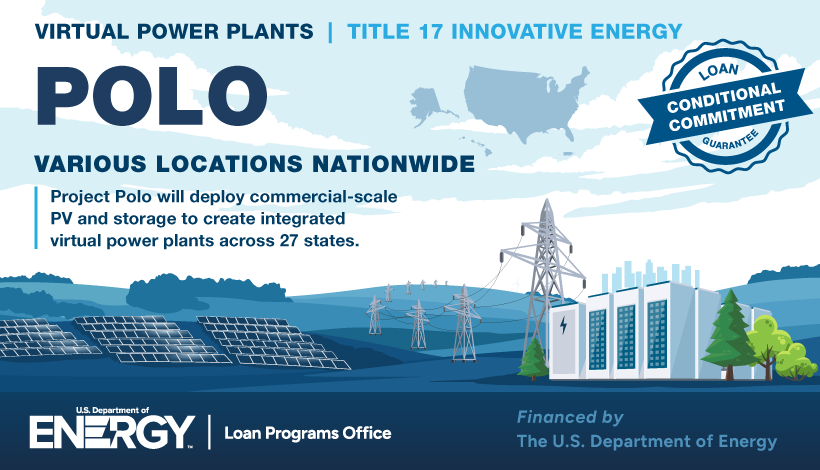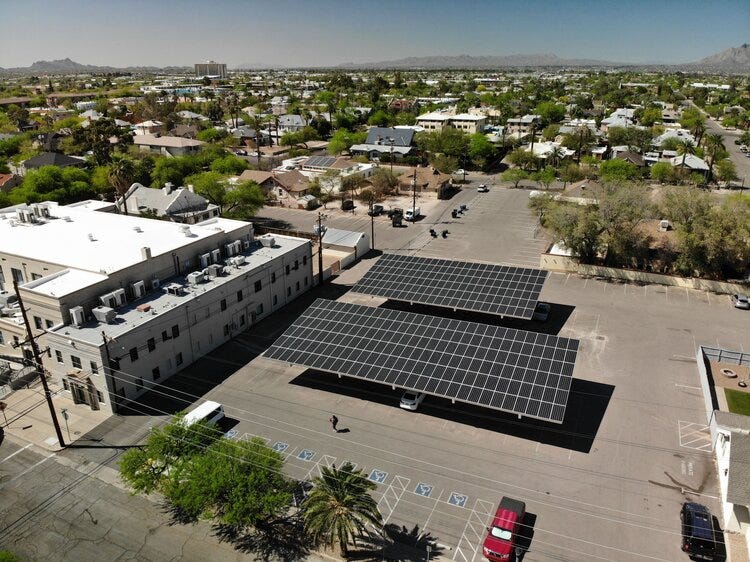Your Daily Dose of Climate Hope: December 27, 2024
Project Polo: virtual power plants across 27 states!
A new LPO project would supercharge new virtual power plants by funding up to 1,000 new solar and battery storage projects across 27 states
Tell Congress to sustain U.S. investment in clean, reliable virtual power plants!
Touch or scan the QR code below to take today’s action in the app and earn trees!
Or take action on the Internet – no app required!
Reasons For Hope
On November 25, 2024, the U.S. Department of Energy’s Loan Programs Office (LPO) announced Project Polo, a conditional commitment to loan up to $289.7 million (~$0.29 billion) to Sunwealth to deploy new virtual power plants by building up to 1,000 new solar (PV) and battery storage (BESS) projects across 27 states! This project is set to reduce emissions and create about 3,700 jobs.
“Systems would be deployed across commercial buildings, multi-family properties, community solar, and other sites across up to 27 states, with an estimated aggregate capacity of 168 MW of PV and 16.8 MW (33.6 MWh) of BESS.
Sunwealth estimates the project will lead to the avoidance of up to 4.07 million metric tons of carbon over the project’s lifetime—helping slash harmful emissions that jeopardize public health and pollute local ecosystems.”
— U.S. Department of Energy
Virtual power plants are a rapidly growing new solution to digitally link distributed clean energy resources, like household rooftop solar, home batteries, and EVs, to act in unison and send power to the grid like a single power plant. And the potential is amazing! The U.S. Department of Energy estimates that the rapid spread of home cleantech will create the potential for 80 to 160 gigawatts of virtual power plant capacity across the country by 2030, enough to meet 10-20% of the entire U.S. grid’s peak energy requirements while saving customers $10 billion in utility rates.
Project Polo is exactly the kind of strategic investment we need to boost sovereign, decentralized American clean energy. As with other major LPO cleantech loans, it’s up to Congress to determine whether vital funding like this will be sustained in upcoming budget cycles. And in an uncertain political environment, enlisting vocal Congressional champions to defend specific clean energy projects is likely to be increasingly important. Your voice can help show that American voters care about sustaining strategic cleantech investments.







